






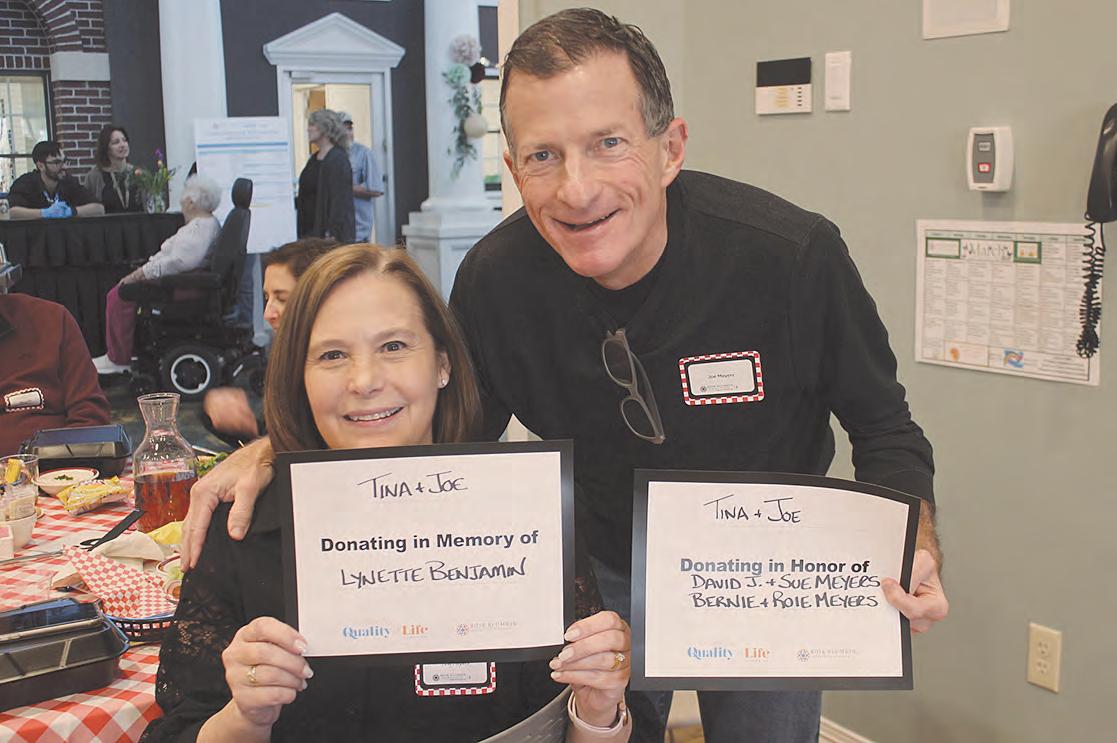
ANNETTE VAN DE KAMP-WRIGHT Jewish Press Editor
As the Rose Blumkin Jewish Home has begun the first phase of its renovation, it’s planning needed updates and improvements. It’s something that cannot be done without donors who care deeply about continuing the level of

On Purim, Chabad hosted an unforgettable celebration that brought together 50 community members in their 20s and 30s for a night of festivity, friendship, and reflection.
The event was testament to the Jewish interest, vibrancy, and spirit amongst the youth in our community.
See Chabad’s Purim page 2
care the Blumkin Home is known for. Cue the Meyers family! “The Blumkin Home has played a major role in the care of our parents over the years,” Joe Meyers said. “When we first learned of this project, our entire family got together to discuss it. We have always been a supporter of RBJH, and we knew we would participate again.”
See Why do you give? page 3
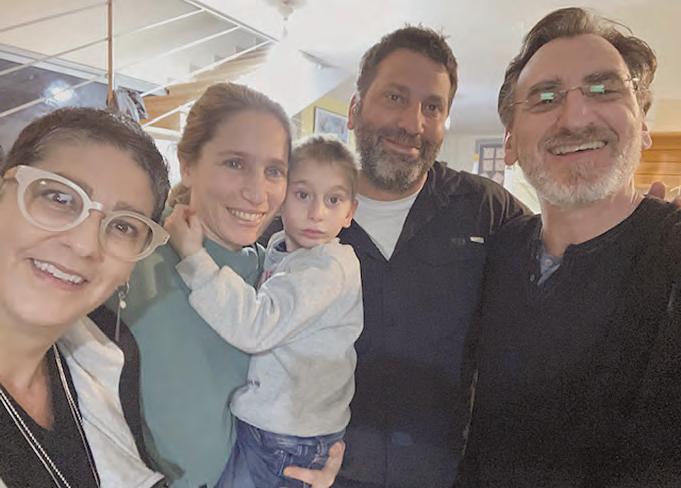
Shachar, Leigh, son, K & B in Pardes Hanna
BOB GOLDBERG JFO CEO MARCH 2
Today was a fun day. We started late and went to breakfast with Avital and Ilan Ben Dror at the Breakfast Club in Shavei Tzion. Shavei Tzion is one of our favorite communities. It sits just
south of Nahariya on the beach and the Breakfast Club is a great little place to eat which is run by our friend Chef Morris and his wife Lihi. They saw us as we walked up and gave big hugs. The place was very busy and we found a table on the patio and ordered coffees and See Bob’s Israel Journal page 3
Continued from page 1
Dinner was kicked off with a mouthwatering hot pot feast prepared by master chefs, Alex and Bobo Wolf. Hot pot delicacies delighted the senses and warmed all hearts.
From savory meats to fresh vegetables, every dish was a culinary masterpiece. Dessert offered participants specially imported hamantaschen from New York—a sweet indulgence that added to the festive atmosphere. “I loved the authentic taste of Purim,” said Joe B. “These hamantaschen really hit the spot.”
Next, participants engaged in an interactive drum circle, where the rhythmic beats and lively melodies filled the room with energy and excitement.
Led by a talented musician, the drum circle was an interesting, fun medium to bring the group together in harmony, creating unforgettable memories in the process, while also honoring individuality.
Amidst the joyous festivities, the evening also provided moments for pause and reflection.
Lilian Cohen and Rachel Morros, seniors at University of Nebraska at Lincoln and current leadership of Hillel at UNL, shared a heartfelt report of recent experiences at Chabad-sponsored events, including the Jewnity Shabbaton and the Living Links trip to Poland. Jewnity was an intercollegiate Shabbaton. Isa Wright who attended the Shabbaton, echoed Lillian and Rachel’s review.
“While I always love being Jewish, Jewnity
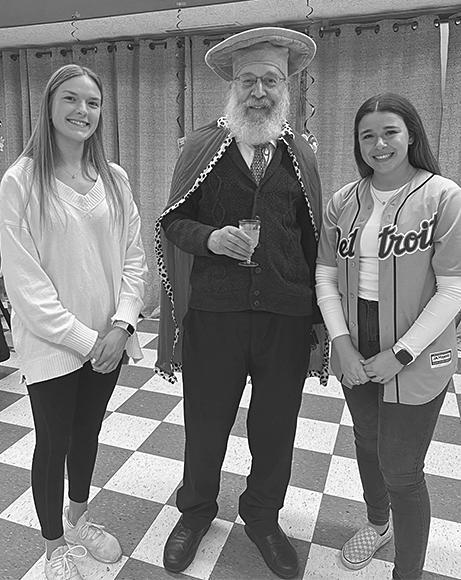
drowned me in that love for a few days,” she said. “It highlighted the best parts: prayer, torah study, intelligent arguments, and good food. The chance to disconnect from the outside world and enjoy Shabbos with such amazing people was phenomenal.”
Living Links was an international intercollegiate visit to Poland. Participants could pay tribute to victims of the atrocities visited on our people during the Holocaust. Lillian and Rachel spoke of rediscovering and strengthening joy and pride in Judaism and making it personal. Especially in the face of challenges

post-Oct. 7th, the experience resonated deeply and reminded them of the resilience and strength of the Jewish community.
Rabbi Mendel Katzman, spiritual leader of Chabad of Nebraska, further enriched the evening with his insights about the relevance of the Purim story to contemporary life. He reminded attendees that the lessons of Purim—of courage, faith, and triumph over adversity—are not confined to the pages of history but are calling to us today, guiding us through all challenges and their subsequent wins.
Participants had the opportunity to perform all four Purim mitzvahs at this onestop-Purim-shop.
The success of the event has sparked enthusiasm for future gatherings and activities within the Omaha Young Professionals community. Many expressed eagerness to continue to build meaningful connections and to create lasting memories together.
Rebecca Goldovsky, new to Omaha, says Chabad has been more than welcoming. “The Purim event introduced me to so many Jewish young adults which I found refreshing and exciting.” she said. “Mushka and Rabbi Eli planned the most amazing event, I didn’t want to leave! So excited for what Chabad has in store this year.”
Indeed, this Purim celebration was just the beginning of what promises to be an exciting journey of growth, friendship, and celebration for Omaha’s young Jewish professionals.
On April 12 at 7:30 p.m., Scott Littky will be B’nai Israel’s guest speaker. Scott Littky is the Executive Director of the Institute for Holocaust Education (IHE). The entire community is welcome to join for services and stay for the oneg after.
The IHE provides educational resources, workshops, survivor testimony, and integrated arts programming to students, educators, and the public.

The IHE provides support to Holocaust survivors in our community. Our goal is to ensure that the tragedy and history of the Holocaust are remembered. Fact-based instruction and materials are available to students, educators, and the public to enable them to learn the lessons of the Holocaust and that, as a result, we inspire our community to create a more just and equitable society.
For information about our historic synagogue, please visit our website at www.cblhs.org or contact any of our other board members: Renee Corcoran, Scott Friedman, Rick Katelman, Janie Kulakofsky, Howard Kutler, Carole and Wayne Lainof, Ann Moshman, Mary-Beth Muskin, Debbie Salomon and Sissy Silber.
Continued from page 1 breakfast. Kim started seeing friends she had made during her many visits to the area, including Noa Epstein who lives in the community and who Kim has stayed with many times over the years.
After a relaxing breakfast and some special dishes sent by Chef Morris including two delicious fish dishes simply prepared with olive oil and lemon, we left and came back to the hotel.
Later, we drove south through downtown Haifa to Pardes Hanna to see our friends Shlomit and Tsachi Degan and her kids. Her son Segev is 13 and her twin girls, Si and Nof, are 21 and in the army. They were there with their boyfriends on a break from army service.

Kim and Shlomit became like sisters volunteering for P2G around 2006 and have stayed very close friends.
Shlomit is doing art therapy work and Tsachi runs a company his father started many years ago that builds machinery for orchards that produce fruit and nuts. His equipment is sold around the world.
We heard about Segev’s Bar Mitzvah last August and Nof’s upcoming test of her English language skills to participate in an advanced army officer program.
We heard lots of stories about Oct. 7 and the aftermath. The suffering and trauma. The resilience and strength of the people. They are amazing.
We had tea and cakes and they gave us some of their homemade olive oil to bring home. Their community, Pardes Hanna, is where Nate Schwalb grew up, so I took a photo of the sign to the entrance of the community and sent it to Nate. The area has grown. It was 30,000 people just a few years ago and now is almost 50,000.
Pardes Hanna is also home to our good friend Shachar Gal and his family. Shachar spent the day touring around a group from Indianapolis and messaged me as he was getting home. We left Shlomit and family and drove the five minutes to Shachar’s house and hung out with him, his wife Leigh, and their kids. After an hour of fun there, we made the drive back north to Nahariya.
The driving is made a bit complicated as the IDF has disabled GPS in the north to disrupt Hezbollah attacks but luckily, we found our way.
Many of our conversations were how they were dealing, what was coming next, and how the situation was viewed from our vantage point. All of them feel that war with Hezbollah is coming in the spring. All of them are concerned about how this will end. All of them are concerned about the lack of understanding from much of the world’s media and particularly from American youth, as it pertains to Israel’s situation in the face of terror. It was great to see and hug people we love. It was a fun day. I forgot to mention that after breakfast, we met a young man, 21 years old, his name is Amit. He is best friends with Noa Epstein’s son Yoni. Amit served in the Golani and was in-
Continued from page 1
jured in Gaza when shrapnel from a rocket went into his chest. He was airlifted from Gaza to the hospital where they opened his chest to do surgery. His chances of survival were bad. He survived miraculously. He still has a piece of shrapnel lodged in between two areas of his heart. The surgeons said it was too risky to try to remove it and they think he will be ok with it in there.
Amit speaks very little English so others translated. He was welcomed back home to Shavei Tzion a hero with a parade of flag wavers. Amit and Yoni have many friends, young people, who have died. Many others who have been severely injured and others still being held hostage. The trauma these young people face is unlike anything I can ever imagine. They all hail him a hero and rightly so. He gave us big hugs and we thanked him for his sacrifice.
MARCH 3
Friends who have to fight
Yesterday was a slower start to the day. We slept in. Kim met a friend for breakfast, so I ate breakfast in the hotel and then walked down Gaaton Street towards the beach. Nahariya is an older town. Gaaton has quite a few older one-bay shops, mom and pop shops, selling clothes or electronics or food or shoes, etc. There were many buses and taxis and people out doing their business. It has many older individuals and a significant Russian community.
I walked towards the beach and found my way there only to get stuck in a bit of a rain shower. There are many newer upscale residential properties being built close to the beach. I stood under a canopy watching the waves come in as the rain slowed.
I made my back to the hotel and made plans to meet up with Ari Brodkey. Ari is the son of Sharon Brodkey; he made Aliyah and is now married and lives in Kiryat Bialik, about 30 minutes south of Nahariya. At the same time, Kim messaged me that our friend, Avi Hatchuel, who is in charge of a platoon of soldiers on the northern border would be able to get away for an hour to meet us, so Avi, Ari, Kim and I met at a little hummus shop and visited.
Avi told us, as much as he could about the situation on the northern border. Avi’s two kids are also now in the army and serving in the south. He said he goes many sleepless nights worrying about his daughter and son in the army. He said many of his soldiers go 48 and even 72 hours without sleep while on duty and coffee is their friend.
It was great to catch up with both Ari and Avi.
Later, Kim went to another meeting and I rested.
Nancy Schlessinger’s plane landed around 2:45 p.m. and she got her ride and started heading north.
The P2G program started at 5:30 p.m. and it was great seeing old friends and meeting new ones. We have folks here from eight of our US communities, including Indianapolis, San Antonio, Louisville, Peoria, Fort Wayne, Des Moines, Toledo, and Omaha. To be continued in next week’s edition of the Jewish Press.
Bruce Meyers agreed: “When Jon and Joe brought the family idea to me, there was no hesitation on my part, because I knew this was something that I wanted to do. I further shared the idea with my siblings and kids, and we are here today all for the same reasons.”
Together with his wife Tina, Joe chaired the deli fundraiser that was recently held at the RBJH.
Tina Meyers has a personal connection to RBJH for a number of reasons.
“Numerous members of our family have received excellent therapy care during short term rehab stints,” she said, “and daily needs and emotional care as full-time residents; and ultimately, end of life care at Blumkin, including Sue Meyers, Bernie and Roie Meyers and my mom, Lynette Benjamin. The expertise and compassion shown by the staff is second to none. They truly care for the residents as if they were members of their own families. I have come to know many of the staff over the years and everyone is skilled, professional and empathetic.”
“The Rose Blumkin Jewish Home has always meant so much,” Vicki Perlmeter said, “and helped our family for many years. My boyfriend John Robinson was there in his last days, and I always felt that was where he needed to be. Having our parents there always gave us peace of mind. Being there allowed them to enjoy their Jewish faith through their later years, and this is where we are hoping to spend our later
years. We want to know we will be able to celebrate holidays, enjoy Jewish food and activities!”
“My history with the Home goes back to Dad and Dave's mother,” Bruce said, “who spent her last days at the home. Then my father and mother spent eight and four years respectively at the home. Many of the wonderful caregivers who took care of Grandma were still there to take care of Mom and Dad. The passion and compassion that these people provide is truly remarkable. Many residents have no family in Omaha, so the staff becomes their family in their final years. They work to make their environment as close to home as possible. Nobody is excited to move to Blumkin, but many of us will spend our final years there, and there is absolutely no better place to do that than at Blumkin, and that is a known fact in the greater Omaha Community. Our Jewish Community absolutely needs to take care of the people that took care of us.”
Tina has also been a volunteer for the past few years as a member of the Jewish Social Services Board and as a Covid tester and helped transport residents to and from events.
“I have learned about the complexity of running a nursing home from serving on the Board and I know the staff does everything in their power to make RBJH one of the top-notch facilities in Nebraska,” she said.
“Both as a family member and as a volunteer, I have seen the real difference RBJH makes in caring for our elderly,” Tina See Why do you give? page 5








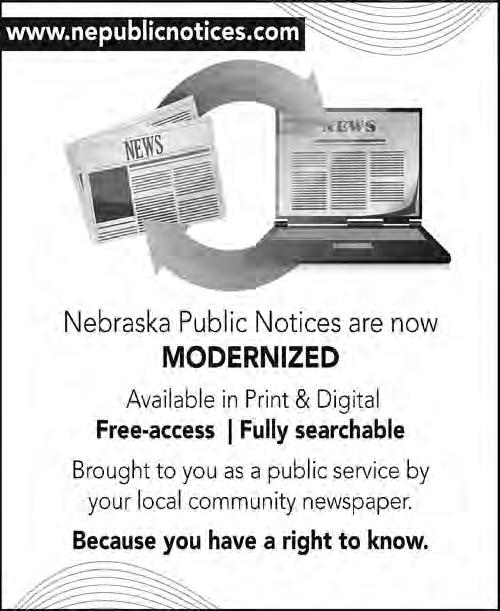


 JOSH LANCMAN AND MADDIE TEITELMAN JTA
JOSH LANCMAN AND MADDIE TEITELMAN JTA





Jewish high school students are looking for more than just an active Greek life or Ivy prestige when they put together a short-list of colleges to apply to. As the Jewish Telegraphic Agency’s Jacob Gurvis reported recently, real and perceived antisemitism on campus is a big factor for many teens deciding where to spend the next four years. The Hamas attacks of Oct. 7 and the subsequent war have made colleges and universities hotbeds of pro-Palestinian and anti-Zionist activism, which critics on and off campus have said often cross the line into antisemitism.
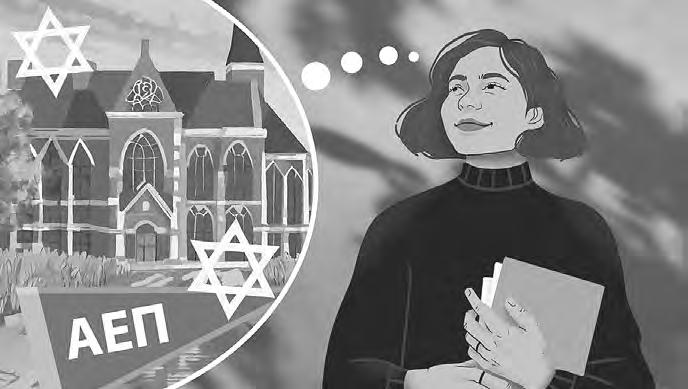
Such incidents have inspired a new set of criteria for Jews applying to colleges. Are colleges “safe spaces” for Jewish students? Do they have the critical Jewish infrastructure to make students feel they are not alone? Are there policies in place to ensure a healthy learning environment for all students, and do the administrations enforce them?
JTA asked three seniors to share with us what their college application rollercoaster has been like this year. We ran part 1 in our March 22 edition.
‘I could not apply somewhere where I would be unsafe’
MADDIE TEITELMAN, 17, Portland, Oregon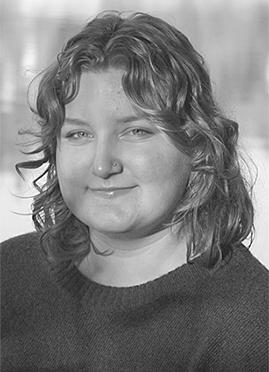
Growing up in a suburb outside of Portland, Oregon, I was the only Jewish student in my classes until high school. I longed for the experience my dad had growing up on the East Coast surrounded by a large Jewish community, being involved with activities at his local JCC and dining at kosher restaurants with family and friends. I imagined attending Jewish Student Union meetings or dinners at Hillel. By the time school started this year, I narrowed down my list of dream schools to Columbia, NYU and Fordham. I chose Columbia and NYU because of their relatively large Jewish student populations and Fordham because I knew a few alumni and current students.
As soon as the war broke out in Israel, I began monitoring the
websites and social media pages of “my” schools. In the following weeks, Columbia and NYU repeatedly appeared on my news feed for inaction against student groups that praised Hamas and threatened Jewish students. It was heartbreaking, but I removed them from my list of schools. I could not apply somewhere where I would be unsafe and ignored by administrators.
By the end of December, I applied to only six colleges: four West Coast schools, Fordham, and Hampshire College in Massachusetts, a school where over 40% of the student body is Jewish. Finding a school with a Jewish community had always been important to me, but now it felt vital. I routinely checked the news for instances of hate on the campuses of those six and I found no notable incidents. I also monitored the social media accounts of each school’s Chabad, Hillel or Jewish Student Union to see how the school’s Jewish students were coming together as a community. I was relieved to find that these groups were still hosting weekly Shabbat dinners and other gatherings because it felt like a sign that the students there felt safe to be proudly Jewish.
My bubby knew I had been looking at colleges on the East Coast and told me she would be concerned about my safety if I ended up far from home. Knowing that my bubby, a proudly Jewish woman, was concerned about my safety because I’m Jewish was heartbreaking. I knew then that because of the rise of antisemitism across the nation I needed to be sure that I’d be safe and have my family and my support system close by. Though Hampshire is not completely off my list because of the strong Jewish community, I am carefully considering whether or not I am okay with being so far away from everyone I know, especially when facing antisemitism.
I haven’t decided where I’ll be going next year due to FAFSA delays and March dates for admissions decisions. I still look See Picking colleges page 5
DAN MILLER
Having served nearly 30 years as a Physical Therapist, I have grown to appreciate that resilience through life’s trials certainly has its merit in preserving our personal roles and responsibilities. Yet if we look closer, such a response can become overwhelming, posing a deterrent to our essential healing requirements and ultimately even to our own identity. Because pain consumes, but healing is personal.
vessel carrying us through life. Job one: most importantly is to re-establish our essential capacity to come to a resting point when at rest. To restore calm, to one’s existence.

Recognizing too, “the world” we find ourselves living in, bombarded by a whole host of influences provoking fear, anxiety and ultimately the persistent reflexive response to both protect yet press on, has guided me to establish Healing Calm Physical Therapy. Meeting patients exactly where they find themselves, in genuine need of authentic help.
A useful phrase descriptive of one’s presentation of need is “Form follows function.” In other words, one’s history ultimately manifests itself, mind, body and soul in the combined
Positive change thereafter can only come about when the inherent nature of the body is summoned in such a way that the body does not in fact resist the desired change. Hence, the art of healing – working within a therapeutic threshold as defined as successfully delivering a therapeutic influence from which the body can favorably adapt, versus supporting or perpetuating deterrents to healing such as protective and compensation patterns.
For those in genuine pursuit of restorative wellness, we at Healing Calm Physical Therapy offer a substantive devotion to successfully fulfilling such a pursuit. For more information, please view our website at www.healingcalmphysicalther apy.com or by calling us at 402.502.3014 to get started today.
Liberation in Healing – Rest Assured SPONSORED CONTENT

Continued from page 3 said. “We are so lucky to have RBJH in our community!! Now it's our turn to commit to helping reach the fundraising goal, so that RBJH can continue to serve the community and provide the best care for the future.”
“Our family gift is made not in memory of our parents and grandparents, it is made in honor of them,” Bruce said.
“This project seemed so critical to the continued success of Blumkin,” Joe added. “So, together, we decided to stretch ourselves to do our part, and to honor the giving legacy taught to us by David, Sue, Bernie and Roie. We truly believe that upgrading the rehabilitation facilities will make them the number one choice for those in our community who need a short-term facility. However, converting all of the resident rooms to single rooms is imperative to help provide a better quality of life for all of the long-term residents. We have personally experienced the wonderful shared spaces in the building many times, but there were many times that having a single room allowed us the privacy that we desired for a visit. Additionally, the single rooms are critical to the residents for privacy during difficult health periods, overall improved sleep and simply for them to have a place for some time to enjoy a television program by themselves.”
“Obviously, the financial support of the entire community is needed for this project to become a successful reality. We hope everyone will consider stretching themselves as well, when they consider their donation.
“In addition to personally experiencing the need to upgrade the RBJH facilities, I have experienced Blumkin both as a family member of a resident, and as a volunteer. It's easy to spend time with a family member doing my part to make their day a little bit better. I have also volunteered over the past few years testing for Covid, taking residents on outdoor bike rides throughout the neighborhood, playing Yahtzee and poker with residents and helping transport residents to various entertainment events lined up by the RBJH staff. The opportunity to play such a small role in improving someone's day has been incredibly fulfilling. I highly recommend it to anyone who has extra time available in their week.”
The award-winning B’NAI B’RITH BREADBREAKERS speaker program currently meets Wednesdays via Zoom from noon to 1 p.m. Please watch our email for specific information concerning its thought-provoking, informative list of speakers. To be placed on the email list, contact Breadbreakers chair at gary.javitch@gmail.com
Visit us at omahajewishpress.com

SCOTT LITTKY
Executive Director, Institute for Holocaust Eduation
On April 18 at 11:30 a.m. by Zoom, Dr. Steve Wees, a member of our second generation survivor community and a regular speaker for IHE will be our presenter. Dr. Wees will share with us his experiences and insight from his recent trip to Poland and his experiences from visiting sites from the Holocaust.
For more information regarding Third Thursday programming at IHE, or to RSVP for a program, please reach out to Scott Littky, Executive Director of IHE, at slittky@ihene.org
Continued from page 4

Steve Wees with students at Temple Israel
forward to my college experience and I know there are Jewish organizations on each campus. I know I will find a community of Jewish peers, even if it isn’t in the setting I originally planned.
‘My list became about the strength and resilience of the campus Jewish community’
JOSH LANCMAN, 18,
West Orange, New Jersey
Early on in junior year, I worked out a process to touring colleges:
1. Email the rabbi (Chabad or Hillel) ahead of time to find a Jewish student to host me for the weekend. This never failed, and usually my host and I knew at least a few people in common.
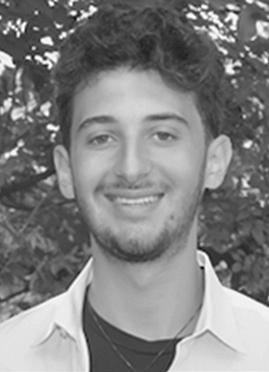
2. Book a tour on Friday before Shabbat. Arrive early that day and ask the tour guide (likely not Jewish) about Jewish life on campus. (“Chabad” would usually be pronounced with a “ch” as in “chat” or “h” as in “hut,” and, when asked about antisemitism, the tour guide would likely respond by saying that it didn’t exist on campus, even if that wasn’t true.)
3. Enjoy the weekend and become part of the campus Jewish community, if only temporarily.
After repeating this a few times, antisemitism became an
important consideration for me when determining which colleges to apply to. Touring colleges as though I was already a student there prompted me to avoid going to schools where antisemitism was an active issue, and where, I felt, I would plausibly be in danger just visiting for a few days. Hearing from a friend at one small liberal arts college how students would casually talk about hating Jews made me cross that school off.
For similar reasons, other similar colleges followed.
Back in March of last year, when anti-Israel protesters at Tufts disrupted a talk by Israeli and Palestinian peace activists, I quickly canceled my trip to that campus. My list shrunk to colleges I deemed safe for Jews.
Yet after Oct. 7, no place, it seemed, was completely fine. My application list became not about safety, but about the least unsafe. Rather than a lack of antisemitism, the strength and resilience of each campus’ Jewish community in the face of hatred became my main reason for applying.
Cornell University, where my cousin arranged a visit of support from New York Gov. Kathy Hochul after a threat on the Center for Jewish Living, quickly shot to the top of my list. Although antisemitism appears to be still prevalent, the Jewish community remains strong, with support from non-Jewish students in several university-wide Shabbat dinners, one of which I attended back in October.
My touring procedure, at first a way to have fun, experience the social life and save some money on hotel rooms, became a way to gauge my prospective community for the next four years, seeing who I could go to when, almost inevitably, I experienced antisemitism.

RON KAMPEAS
WASHINGTON | JTA
Howard Kohr, the CEO who has led the American Israel Public Affairs Committee since 1996, is set to retire by the end of this year.
Under Kohr’s leadership, AIPAC has traversed five presidencies and more than 10 Israeli elections. In that time, its budget and staff have enjoyed significant growth as it has become one of the best known and most powerful lobbies in
Washington. During his tenure, the United States’ military aid to Israel increased to $3.8 billion per year, and AIPAC has been a leader in adding sanctions on Iran. In the last election cycle, 98% of the candidates its eponymous PAC endorsed won their races.
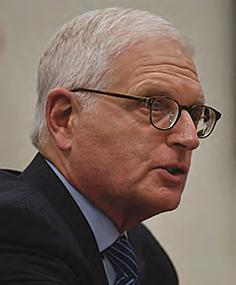
Before the onset of the pandemic, the lobby’s annual conference would bring up to 18,000 people to the nation’s capital — the largest Jewish gathering of the year. The final day of the conference would see cohorts of loyal activists take a threepoint lobbying agenda to their representatives on Capitol Hill. Within weeks those items will often be the talk of the Capitol and on their way to passage.
Kohr’s decades also saw their share of controversy, especially in recent years: There was an espionage scandal in which two of its former employees were ultimately vindicated; a bruising fight with President Barack Obama over the Iran nuclear deal, which ultimately passed over AIPAC’s objections; and the launch of political action committees aimed in part at stemming the rise of progressive Democrats who are outspoken critics of Israel. Its actions have come at the cost of increasing hostility from progressive
Democrats. Since 2020, it has not held a large national conference.
“With your support, Richard Fishman (z”l) and I spent our careers advancing our shared mission and ensuring that AIPAC was always able to strengthen and expand the U.S.-Israel relationship,” Kohr said in an email to the AIPAC board announcing his plans and referencing Fishman, his co-CEO and brother in arms at the lobby, who died unexpectedly in late October.
Kohr, 68, had long wanted to retire at the end of this year, insiders said, and planned last October to announce his exit with Fishman. But Hamas’ Oct. 7 attack on Israel, the ensuing war and Fishman’s death led Kohr to delay the announcement.
The announcement comes nearly six months into the Israel-Hamas war, as Israel is facing mounting criticism from progressives, and the Biden administration, over its military campaign in Gaza. Trump, who has vowed to support Israel, also recently cautioned it to “be very careful because you’re losing a lot of the world.”
Until recently, AIPAC’s influence with both parties was a given, in large part because of Kohr’s formidable fundraising skills.
Kohr steered AIPAC through the arrest in 2004 of two of its top employees, including his onetime mentor, Steve Rosen, on charges they had accepted classified information. One of the first acts of the Obama administration’s Justice Department in 2009 was to throw out the case, after years of objection from civil libertarians who said it infringed on First Amendment rights.
Kohr also spearheaded AIPAC’s opposition to the deal with Iran, which traded sanctions relief for rollbacks in its nuclear policy and which Israeli Prime Minister Benjamin Netanyahu railed against bitterly, including in a controversial speech to Congress.
In a separate email to the board, AIPAC President Michael Tuchin, its board chair, Betsy Berns Korn, and its Presidentelect, Bernie Kaminetsky, all but said Kohr was irreplaceable.
“His mark on the U.S.-Israel relationship will forever be felt,” they said.

The passion is high and the emotions run deep, each piece showcasing a performer’s tendency to show off, take risks, and walk the edge – whether that’s traversing the dance hall, the concert stage or refusing to let one’s feelings be cowed. It’s dance-meets-flash-meets-devotion, performed by Omaha Symphony members, and OCMS regulars Bozhidar Shopov, Paul Ledwon, and Christi Zuniga... and you absolutely don’t want to miss it.
This performance is free and open to the public. A repeat performance will be held at Gallery 1516 on Sunday, April 14 at 11:30 a.m. For more information, visit omahacham bermusic.org
SPONSORED CONTENT


The annual Graduation Issue will publish this year on May 24, 2024. Senior photos will run in that issue and we know you’ll want to highlight the achievements of your high school graduate! Congratulatory ads are available in two sizes. Limit of 25 words.
We are so proud of your achievements – membership in NHS, varsity letter in tennis and a Merit Award from B.E.S.T.T. Photohere
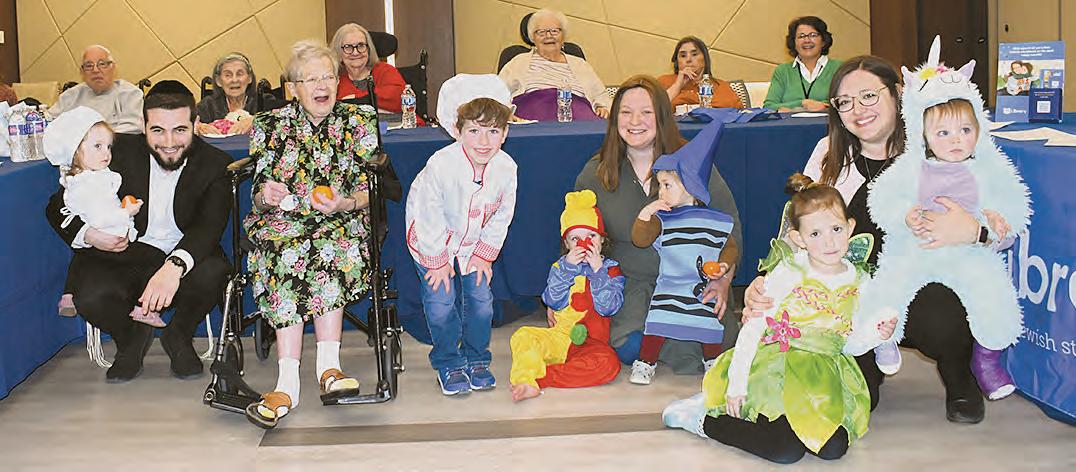
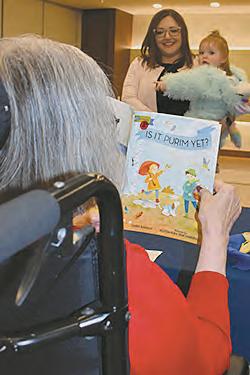
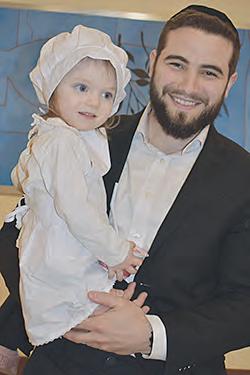
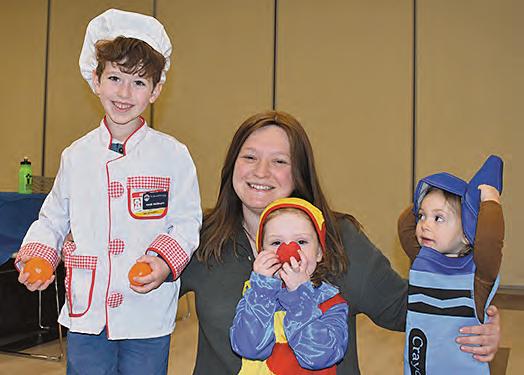

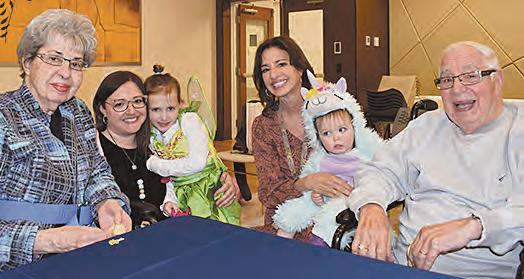
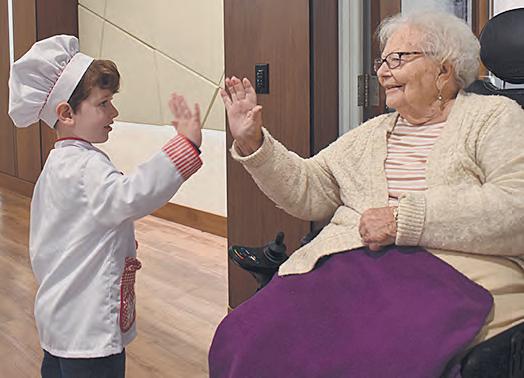
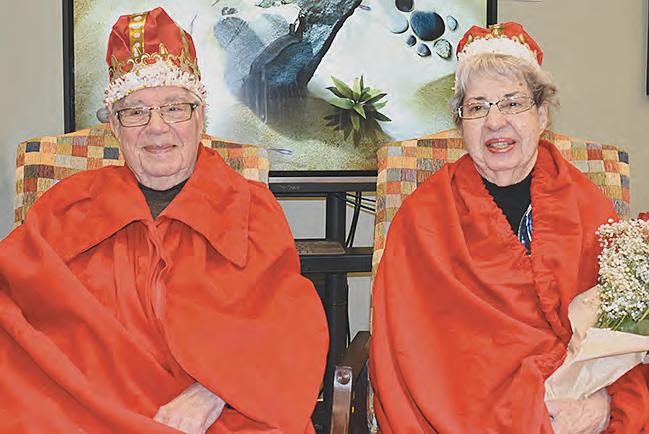
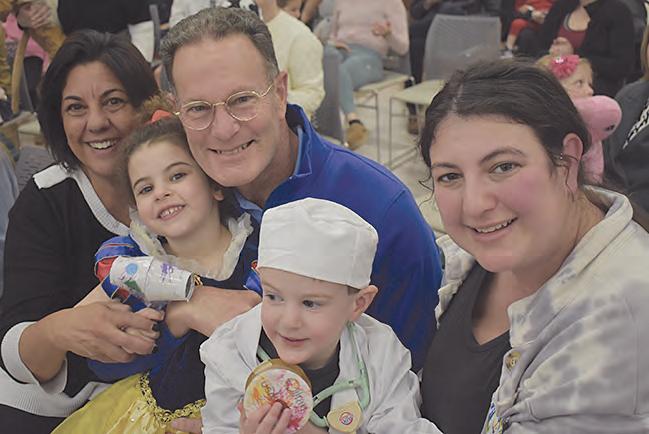
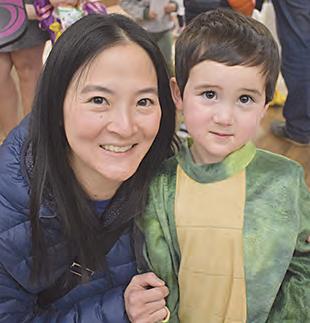
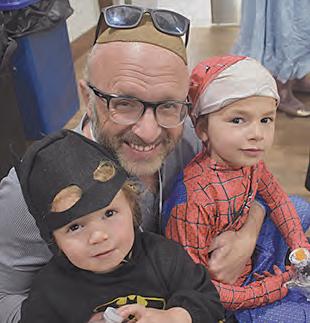



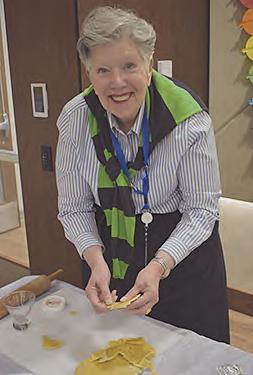
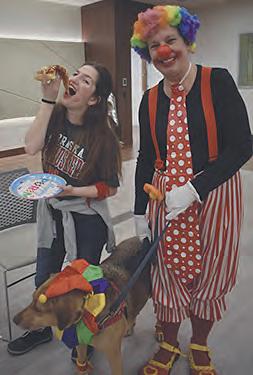
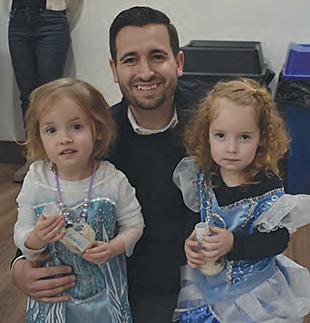
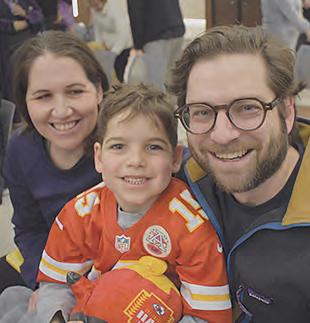
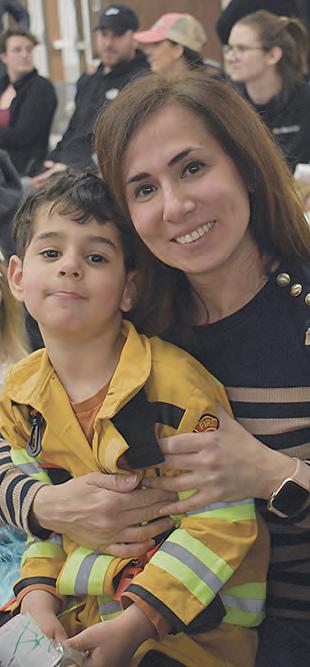
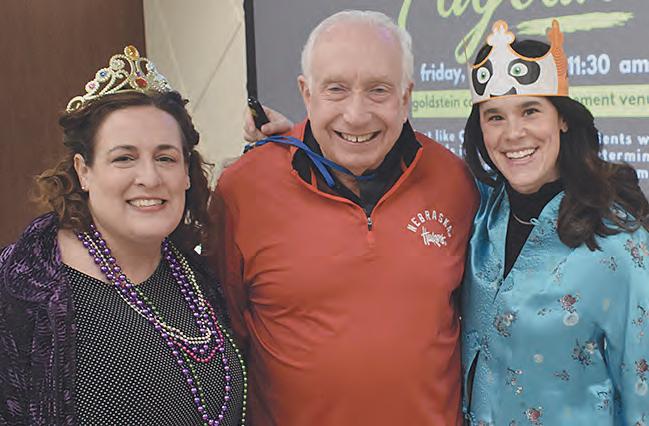
(Founded in 1920)
Margie Gutnik President Annette van de Kamp-Wright Editor Richard Busse Creative Director Howard Kutler Advertising Executive Lori Kooper-Schwarz Assistant Editor Gabby Blair Staff Writer Sam Kricsfeld Digital support Mary Bachteler Accounting Jewish Press Board Margie Gutnik, President; Abigail Kutler, Ex-Officio; Helen Epstein; Andrea Erlich; Seth Feldman; David Finkelstein; Ally Freeman; Mary Sue Grossman; Chuck Lucoff; Suzy Sheldon; Joseph Pinson and Larry Ring. The mission of the Jewish Federation of Omaha is to build and sustain a strong and vibrant Omaha Jewish Community and to support Jews in Israel and around the world. Agencies of the JFO are: Institute for Holocaust Education, Jewish Community Relations Council, Jewish Community Center, Jewish Social Services, Nebraska Jewish Historical Society and the Jewish Press Guidelines and highlights of the Jewish Press, including front page stories and announcements, can be found online at: www.jewishomaha.org; click on ‘Jewish Press.’ Editorials express the view of the writer and are not necessarily representative of the views of the Jewish Press Board of Directors, the Jewish Federation of Omaha Board of Directors, or the Omaha Jewish community as a whole. The Jewish Press reserves the right to edit signed letters and articles for space and content. The Jewish Press is not responsible for the Kashrut of any product or establishment. Editorial
Jewish Press Editor
The Nevele remained accessible from the road through a gap in a security fence and by climbing over the skeleton of a bridge across a stream. Vandals had scrawled graffiti on the golf pro shop’s facade and smashed out the building’s windows, leaving its debris-strewn floor littered with shards of glass. Cattails grew on the steps of the outdoor jacuzzi.
(Luke Tress, NY Jewish Week)
Since August of 2022, there have been a series of fires in the former Borscht Belt. Four resorts have burned; the latest, the Nevele Grand Hotel, partially burned down about two weeks ago.
“Borscht Belt is the nickname for a collection of resorts and vacation bungalows across New York’s Sullivan, Ulster and Orange counties that attracted throngs of Jewish visitors in the mid-20th century and left an indelible mark on American comedy, cinema and culture,” Tress writes.
online about something called “Jewish Lighting.” Supposedly, that’s when Jewish owners burn their properties for insurance fraud, or because they don’t want to pay for asbestos removal. You learn something new every day, I guess.
Those resorts had a very specific purpose during
how everything was better in the past. Because we all know things were not better in the past. We just sometimes choose to forget the bad stuff, and remember only the good.
I think what makes this case different is that the bad part (antisemitism necessitating our own Jewish spaces) is not actually gone. It’s still here, it’s thriving, and the thought of any space that is safe for us is extremely attractive. I can’t help feeling nostalgic for places I’ve never even seen. Especially if they come with vacation time, restaurants, swimming pools, jacuzzis and evening entertainment. A vacation from antisemitism.
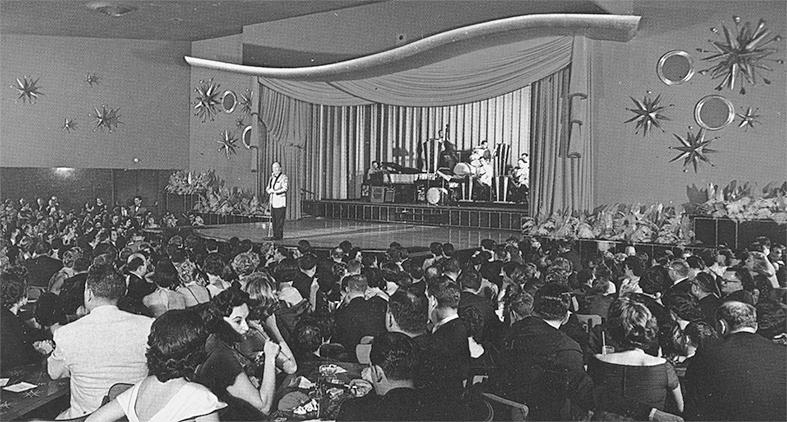
It’s true, what I know about the Borscht Belt I know from books and movies, and though I never experienced resort life first-hand, there is a sadness in reading about how these once celebrated places have closed down, and fallen into disrepair.
Equally concerning are the conspiracy theories. People who have nothing better to do are posting
a time when going on vacation was not necessarily easy for Jews. When many prominent hotels around the country would not welcome Jewish guests, the Borscht Belt resorts offered a safe haven, a place where Jews could be unapologetically Jewish, and connect with each other.
It sounds nice. I really wish those places still existed. And the fact that I think that makes me cringe, like when I hear others reminisce about
I’m not entirely joking. If there is one thing Jews everywhere could use right now it’s time off. Off the war, off the majority of the media, off the constant hate, off the hostage crisis and off the fight for survival—starting with Israelis. Everyone needs a pause button. But while our people are still trapped in Gaza’s tunnels, while we have to beg for the world to acknowledge that we never wanted this war, and that we must have our hostages back, we are not taking that pause—even if someone offers it to us. We will keep going.
Maybe what is happening in the Catskills isn’t just tragic; maybe it is also a reminder that our world is on fire.
When I first met Keith Siegel, he was the last of four siblings still at home. He was in high school, and I remember him pedaling off early in the morning.
I was in a different world, graduate school, and was renting a room from his parents as I needed a quieter place for writing my dissertation than the graduate dorm. Keith was reserved like his father Earl, a professor of maternal and child health. His mother, Gladys, was lively; she had been a nurse, and now was busy with creating batik garments and attending board activities at Beth El Synagogue in Durham, North Carolina. I became like a member of the family.
Keith and I shared a bathroom. Gladys made my veil when I married more than four decades ago. It’s been several years since Earl passed away. Today Gladys lives in an assisted-living facility where the staff have done an excellent job of protecting her from knowing that her youngest son is a hostage somewhere in Gaza.
Two Siegel children, Lee and Keith, made aliyah to Israel many years ago. I knew where Kibbutz Gezer, where Lee and Sheli Siegel lived, was, but I was not aware of the location of Kibbutz Kfar Aza, where Keith and his wife Aviva lived — or how close it is to the Gaza border.
Now I do.
On Oct. 7, an estimated 100 members of the Kfar Aza community were killed. Keith and his wife Aviva were driven into Gaza in their own car, taken captive along with some of their neighbors. Aviva was released in November, along with 100 women, children and non-Israelis as part of a 10-day truce. She said Keith’s ribs had been broken during their capture but that she was with him until the day she was told she was being sent home.
“I gave him a hug and I told him to be strong for me and that I’ll be strong for him,” she said.
I spent nearly all of last month in Israel, wanting to show solidarity as so many others have done, including my rabbi. I traveled alone, hoping to see my cousins — all native Israelis — some friends, and others who have made aliyah recently. I went on this trip ostensibly for them, to let them know Americans are with them. And I hoped, in my own
small way, to help the Israeli economy. But I also went for myself. I wept as I watched the news and bristled as I heard report after report about antisemitism. I wanted to demonstrate strength, too.
Right at Ben-Gurion Airport, in the row of hostage posters arrayed alongside the iconic ramp that arrivals must traverse, one of the first faces to greet me was Keith’s.
I had recognized Keith in the portraits his friends and family painted as they sought to raise attention to his plight in the weeks after Oct. 7.
“He’s a kind, soft-spoken, reflective kind of person, very considerate, thinking of others. That’s his temperament, his way of being in the world,” his brother David said on Good Morning America in November.
kept thinking of as a teen, is a grandfather, too, five times over.
Aviva Siegel has been working unceasingly to gain her husband’s release, traveling to Geneva, testifying in the Knesset and speaking at rallies. Lee and Sheli, too, have been doing everything they can. They told me, when I saw them at their home
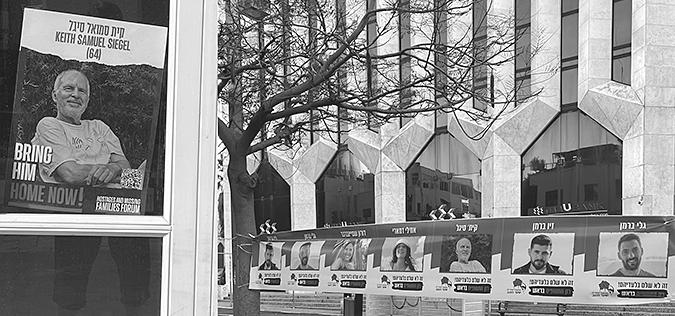
Keith was about as gentlespirited, decent as a guy you ever met,” Alon Tal, the former member of the Israeli Knesset who also grew up in Durham, told our local news channel. “A very kind person.”
Now I saw his face wherever I went. In Tel Aviv, Ra’anana, Netanya and Jerusalem — there was Keith, standing out among the dozens of other faces that Israelis see everywhere they go: on trains and buses, in restaurants, on the street, in shopping malls, in the window of an historic house, on banners strung between posts on Rothschild Boulevard.
In the United States, the hostage posters have been so often torn down, by people who probably couldn’t find Gaza or Israel on a map. In Israel, these signs are sacred.
I had promised friends at home that I would post something each day, and I did. Pictures of Keith and the other hostages dominated.
In Tel Aviv, I made a pilgrimage to Hostage Square, the area in front of the Tel Aviv Museum of Art, where I joined a huge outpouring. Lee and Sheli were there, too, but there was no way for me to connect with them in the overwhelming crowds. Thousands listened as a boy and his sister pleaded for the release of their grandfather. Keith, whom I
at Kibbutz Gezer, that they have felt extremely supported by the U.S. Department of State — but not by their own government in Israel. They told me, too, that the spot on Keith’s forehead in the picture was henna, from a party he attended not long before the world changed.
Kibbutzim are cooperative communities, and Gezer seemed an idyllic place to raise children, as Lee and Sheli did. There is a dining hall, children’s centers (with an outdoor area for their rabbits), play areas, communal picnic sites, a ballfield (Kibbutz Gezer has baseball), a library, and many other delights. Lemons and other fruit grow abundantly right next to residents’ homes; I took a lemon, picked right from the Siegels’ tree, back to my home in North Carolina.
Others have taken back weightier relics of their visits: On the day I was at Gezer, Lee and Sheli shared Keith’s story with a visiting synagogue group from England, who promised to tell it in the United Kingdom.
This month, Keith’s sister Lucy and niece Hanna attended President Joe Biden’s State of the Union address as the guests of our senators in North CarSee Of the Israeli hostages in Gaza page 9
You may not like things, organizations, or people that are evil, but you must admit they are effective marketers.
I should say that you may not THINK you don’t like evil things, because the things you think are not evil, may actually be so but they’ve convinced you otherwise.
LARRY RING Guest EditorialFor example, we should all reasonably agree that a terrorist organization that wantonly kills, maims, and kidnaps civilians, including children, the elderly, and the infirm, is evil. An organization that states, as its sole purpose for existence, to kill every member of an opposing religion and to wipe an established country off the map in the most violent way possible. An organization that started a war with its neighbors by violently attacking them, focusing on children, families, and old people, and kidnapping their most vulnerable – shouldn’t we agree they are evil?
Yet when I look at the media and the protests, I do not see this as the primary focus of the story. Rather the Hamas marketing division has been working overtime to ensure that they are seen as the victims. Imagine a media in WWII focusing on the Dresden bombing raids, or the firestorms in Tokyo delivered by allied bombers, and decrying support for the victims. We’d all be speaking Japanese by now or be visiting London,
We might also agree that someone who staged a coup against the United States, tried (for the first time in American history) to disrupt the peaceful transfer of power, and who fomented a violent fascist attack against the US seat of government would reasonably be considered evil. But seemingly half the country is somehow sympathetic. People who until recently considered themselves pro-democracy patriots are lining up to support Vladimir Putin’s propaganda and do his bidding. People who were once ready to imprison, for life, someone who compromised national security even by one loose page, now are fine with our country’s deepest secrets being stored on stage at a golf club, or in its bathroom, and being openly discussed in meetings. A “sexual abuser” wins primaries.
You see, that doesn’t just happen. It’s doesn’t happen by chance any more than your sudden craving for a Big Mac or those Air Jordans. It takes sustained and effective marketing. It takes population segmentation, data analysis, stochastic Monty Carlo simulations, directed UGC, omnichannel mass personalization, assisted SEO, generative AI, chatbots, conversion rate optimization metrics, and full-time dedication to the cause. It takes a glitzy media channel, or two, fully aligned with your cause. Most of all, it takes never, ever, admitting there’s another side or that you were wrong. You must convince people to ignore their own eyes and ears. To suspend rational thought. To be pack animals that you lead. That’s marketing.
How else are you going to get women to vote for people who
want to take away their bodily autonomy? How else are you going to convince minorities to vote for people espousing white supremacy and who are making it harder for minorities to vote? How else are you going to get everyday Americans to support white nationalism and extremist Christian, faithbased government? How else are you going to get people to march in the streets supporting self-proclaimed genocidal terrorists? How else are you going to get a nation of immigrants and refugees to turn so vehemently against immigration? How else are you going to get people to blame the poorest and least influential in society for all their perceived ills? How else are you going to convince people that unionists are elite, and a man with his own jet, golf courses, and golden toilets is a man of the people? That criminals are saints, and public servants are criminals?
It takes catchy slogans. It takes a sustained turn of phrase.
It takes endless repetition and a nimbleness to quickly change to a new set of falsehoods and misdirections even as your old falsehoods and misdirections are exposed. “Oh, that thing we’ve been yelling about for three months has been disproven?
That’s okay, ignore that, here’s the new thing we’re yelling about.”
Behold the marketers! Behold the influencers! Behold them quickly though, for they are picking your pockets and removing your rights. And getting you to vote for it all.
Larry Ring is a member of the Jewish Press Advisory Board
ASAF ELIA-SHALEV
JTA
Growing up Jewish in New York City, Heila Precel absorbed the lesson that education can set you on a path toward personal success and protect against the forces that have marginalized Jews throughout history.
Precel heeded her childhood lesson and made her way to Boston University, where today she is working on a doctorate in computing and data sciences. But a research paper she just published, in partnership with other scholars, suggests that the formula for success that countless American Jews like herself have banked on could be in peril.
The threat comes from the rise of artificial intelligence systems powering the kind of chatbots that communicate like humans — ChatGPT, for example. Those systems are trained on books, articles and other texts that have been fed into the machine largely without the permission of their authors.
That means anyone who produces intellectual property can wind up seeing their work used without license. Those creators face potential copyright infringement and, in the longer term, possible job displacement as A.I. tools may come to replace many white-collar workers.
Precel discovered through research that Jews are overrepresented among authors whose intellectual property is being used for A.I. training purposes. Compared to their numbers in the overall U.S. population, Jewish authors are overrepresented by a factor of two to six-and-a-half based on an analysis of available data. Among those authors are comedian Sarah Silverman and novelist Michael Chabon, both of whom have sued OpenAI, the company behind ChatGPT, for alleged copyright infringement.
Developers of A.I. systems are likely glad to hoover up all the content they get without regard for the identity of its authors, and no one is alleging that antisemitism is at play in the overrepresentation of Jewish authors. In fact, Precel acknowledges that the premise of her research can sound like a bit of a humblebrag: Jews make up a tiny portion of the population but have produced so much knowledge that, to a worrying degree, the future of A.I. research relies on them.
But she said a narrow interpretation like that would miss the point of her paper.
For one thing, the paper emphasizes that further research would likely confirm that other groups, such as Hindu Americans and Asian Americans, are also likely overrepresented. Precel also says exposing biases that harm Jews often reveals broader issues. That idea is reflected in an analogy in the title of the paper, “A Canary in the AI Coal Mine: American Jews May Be Disproportionately Harmed by Intellectual Property Dispossession in Large Language Model Training.”
“We are not saying that all of the lawyers are Jews, and therefore replacing lawyers is going to be bad for the Jews,” Precel said. “There are many lawyers who are not Jewish, and what we are seeing is going to be bad for everyone. It just might be especially bad for Jews, because Jews have historically put a lot of our eggs into this basket of educational attainment. In other words, we are shining a light on this overall problem with the canary-in-the-coal-mine analogy — while
making sure to remember that canary itself does not fare too well in this story.
Precel grew up in a Conservative Jewish household and attended Jewish day school as a child. As an adult she has become more observant and attends synagogue weekly. The label she gives herself is traditional egalitarian. That is all to say that Precel has had many chances to discuss her research with other Jews whose texts may be found in databases used for A.I. training without permission.
In fact, her new paper is published in such a database. She says she’s encountered people with concerns, but many others don’t understand where the training data comes from or how it’s used.
“I get a lot of surprised reactions and some anxieties but also optimism,” Precel said.
Her paper belongs to a larger genre of research into the impacts and implications of technological advancements in the areas of artificial intelligence and machine learning. But Precel’s co-author, Nicholas Vincent, said the issue is often examined “through the lens of underrepresentation” rather than overrepresentation.
“The most famous example is models that performed really poorly on people with dark skin,” said Vincent, a computer science professor at Simon Fraser University in Burnaby, Canada, referring to the problem of image analysis software mislabeling Black people as gorillas. In the realm of text-based systems, he said, “if you’re not from the predominant cultural background, you’re more likely to sort of receive poor outcomes with models used for hiring or credit scoring.”
A new paper released this month tested how A.I. relates to people speaking an African-American dialect of English as opposed to using what’s known as Standard American English. The study found that the A.I. makes racist assumptions based on the difference. One chatbot , for example, was more likely to recommend the death penalty for defendants when they spoke African-American English.
One of the limitations of all these studies is that many artificial intelligence systems operate as black boxes. With ChatGPT, for example, it’s not possible to know what content developers used to train the system, because its owner, OpenAI, considers that information proprietary.
For the Jewish authorship paper, what researchers tried to do, then, is study not the systems but the data that is fed into them. They looked at what data the open-source systems use and at digital repositories of knowledge that are likely being used by the proprietary systems. These repositories contain massive amounts of scientific literature, published books, legal opinions and other kinds of texts.
But since authorship information typically doesn’t indicate that someone is Jewish, the researchers searched for a way to identify and classify authors en masse. For that task they turned to the field of Jewish demographic studies.
Many different techniques exist to identify and count Jews; each has its own strengths and weaknesses. Using surveys to study Jews, for example, can help answer granular questions but is very costly because Jews are a small minority scattered across a wide geography.
“You end up spending a huge amount of money reaching out to people who are not Jewish,” Precel said. “There have been a lot of methods developed in the Jewish demographic literature to try to solve this problem.”
The team settled on a method that infers Jewish identity based on a set of distinctive Jewish last names. Many Jews have indistinguishable last names, but demographers have repeatedly found throughout recent decades in American Jewish history that distinctive Jewish names can be used as a statistical proxy for the overall Jewish population. The method is not helpful for research about Jewish diversity, but it can be used in certain scenarios, such as estimating the number of Jews in a long list of authors of A.I. training texts.
Much of the paper is spent on what might be done to address the concerns raised by the findings. The researchers imagine a future in which A.I. isn’t allowed to replace human work but to augment it, while avoiding large-scale economic disruption.
One possibility for achieving that scenario is using the findings to help inform policymakers and A.I. developers concerned with the ethical dimension of the technology. But the researchers also suggest another route.
“If people organize collectively around their intellectual property, there can be a more level playing field to negotiate with operators of A.I. technologies,” Vincent said. “Individually, your data is of really low value, but when we get enough people together, we have a lot of leverage.”
The Jewish community might already be organized enough to make collective advocacy possible. While there isn’t a union of Jewish writers, for example, informal coalitions of creative professionals have responded to anti-Israel sentiment in the literary world and in Hollywood.
In a hypothetical scenario, a group representing Jewish writers could come together and agree to adopt measures on their websites blocking bots from collecting content.
Continued from page 8 olina. They wore yellow scarves like the other American family members of the Israeli hostages who also sat in the hallowed government chambers. Their presence eked out hope at a time when the prospects feel dim for another deal that could result in hostages like Keith going free, and as another one of the remaining American hostages was revealed to be dead.
Then I remember leaving Israel a few weeks ago. There was Keith again at the airport. He was no closer to being released than when I arrived.
Jane Gabin is an educator, counselor and writer living in Chapel Hill, North Carolina.
The views and opinions expressed in this article are those of the author and do not necessarily reflect the views of JTA or its parent company, 70 Faces Media.
B’NAI ISRAEL
SYNAGOGUE
618 Mynster Street Council Bluffs, IA 51503-0766
712.322.4705 www.cblhs.org
BETH EL
SYNAGOGUE
Member of United Synagogues of Conservative Judaism
14506 California Street Omaha, NE 68154-1980
402.492.8550 bethel-omaha.org
BETH ISRAEL
SYNAGOGUE
Member of Union of Orthodox Jewish Congregations of America
12604 Pacific Street Omaha, NE. 68154
402.556.6288
BethIsrael@OrthodoxOmaha.org
CHABAD HOUSE
An Affiliate of Chabad-Lubavitch 1866 South 120 Street Omaha, NE 68144-1646
402.330.1800 OChabad.com
email: chabad@aol.com
LINCOLN JEWISH COMMUNITY:
B’NAI JESHURUN
South Street Temple
Union for Reform Judaism
2061 South 20th Street Lincoln, NE 68502-2797
402.435.8004 www.southstreettemple.org
OFFUTT AIR FORCE BASE
Capehart Chapel 2500 Capehart Road Offutt AFB, NE 68123
402.294.6244 email: oafbjsll@icloud.com
ROSE BLUMKIN
JEWISH HOME
323 South 132 Street Omaha, NE 68154
TEMPLE ISRAEL
Union for Reform Judaism (URJ)
13111 Sterling Ridge Drive Omaha, NE 68144-1206
402.556.6536
templeisraelomaha.com
LINCOLN JEWISH COMMUNITY:
TIFERETH ISRAEL
Member of United Synagogue of Conservative Judaism
3219 Sheridan Boulevard Lincoln, NE 68502-5236
402.423.8569
tiferethisraellincoln.org
Monthly Speaker Series Service, Friday, April 12, 7:30 p.m. with our guest speaker, Scott Littky. Our service leader is Larry Blass. Everyone is always welcome at B’nai Israel!
For information about our historic synagogue, please visit our website at www.cblhs.org or contact any of our other board members: Renee Corcoran, Scott Friedman, Rick Katelman, Janie Kulakofsky, Howard Kutler, Carole and Wayne Lainof, Ann Moshman, Mary-Beth Muskin, Debbie Salomon and Sissy Silber.
Handicap Accessible.
Services conducted by Rabbi Steven Abraham and Hazzan Michael Krausman.
IN-PERSON AND ZOOM MINYAN SCHEDULE: Mornings on Sundays, 9:30 a.m.; Mondays and Thursdays 7 a.m.; Evenings on Sunday-Thursday 5:30 p.m.
FRIDAY: Kabbalat Shabbat 6 p.m.; Pre-Neg & Tot Shabbat, 5:30 p.m.; Our Shabbat Tables, 7 p.m. at Beth El.
SATURDAY: Shabbat Morning Service, 10 a.m. at Beth El & Live Stream; Jr. Congregation (Grades K-12), 10 a.m.; Havdalah 8:30 p.m. Zoom only.
SUNDAY: BESTT (Grades K-7), 9:30 a.m.; Hebrew Reading for Adults, 10:30 a.m. with Hazzan Krausman; Torah Tots (ages 3-PreK) 10:45 a.m.; Adult B’nai Mitzvah, 11:15 a.m. with Hazzan Krausman; Young Family Passover Program, noon.
TUESDAY: Pirkei Avot, 11:30 a.m. with Rabbi Abraham.
WEDNESDAY: BESTT (Grades 3-7), 4:15 p.m.; Hebrew High (Grades 8-12), 6 p.m.
THURSDAY: PJP What Jews Think Series, Dr. Andrea Dara Cooper, University of North Carolina at Chapel Hill speaks on “Jewish Philosophy and Feminism”, 7:30 p.m. Zoom only.
FRIDAY-Apr. 12: Kabbalat Shabbat, 6 p.m.
SATURDAY-Apr. 13: Shabbat Morning Service, 10 a.m. at Beth El & Live Stream; Blessing for Matt & Yousef Hazimeh during services; Jr. Congregation (Grades K-12), 10 a.m.; Havdalah 8:40 p.m. Zoom only.
Please visit bethel-omaha.org for additional information and service links.
FRIDAY: Nach Yomi, 6:45 a.m.; Shacharit, 7 a.m.; Candlelighting/Mincha/Kabbalat Shabbat, 7:37 p.m.
SATURDAY: Shabbat Kollel, 8:30 a.m.; Shacharit 9 a.m.; Tot Shabbat, 10:30 a.m.; Youth Class, 10:45 a.m.; Kids Kiddush Club, 11:15 a.m.; Soulful Torah: Unpacking the Or HaChayim’s Teachings, 6:45 p.m.; Mincha/Ma’ariv, 7:30 p.m.; Laws of Shabbos/Kids Activity 8 p.m.; Havdalah, 8:38 p.m.
SUNDAY: Shacharit, 9 a.m.; Kinyan HaMasechta, 9:40 a.m.; Duties of the Heart 3 p.m.; Mincha/ Ma’ariv 7:40 p.m.
MONDAY: Nach Yomi, 6:45 a.m.; Shacharit, 7 a.m.; Monday Mind Builders 4 p.m.; Mincha/Ma’ariv, 7:40 p.m.
TUESDAY: Nach Yomi, 6:30 a.m.; Shacharit, 6:45
a.m.; Kinyan HaMasechta before Mincha/Ma’ariv; Mincha/ Ma’ariv, 7:40 p.m.
WEDNESDAY: Nach Yomi, 6:45 a.m.; Shacharit, 7 a.m.; Mincha/Ma’ariv, 7:40 p.m.
THURSDAY: Nach Yomi, 6:45 a.m.; Shacharit, 7 a.m.; Character Development Class, 9:30 a.m.; Kinyan HaMasechta before Mincha/Ma’ariv.; Mincha/Ma’ariv, 7:40 p.m.; Parsha Class, 8:10 p.m.
FRIDAY-Apr. 12: Nach Yomi, 6:45 a.m.; Shacharit, 7 a.m.; Mincha/Kabbalat Shabbat, 7 p.m.; Candlelighting, 7:44 p.m.
SATURDAY-Apr. 13: Shabbat Kollel, 8:30 a.m.; Shacharit, 9 a.m.; Tot Shabbat, 10:30 a.m.; Youth Class 10:45 a.m.; Kids Kiddush Club, 11:15 a.m.; Soulful Torah: Unpacking the Or HaChayim’s Teachings, 6:45 p.m.; Mincha, 7:30 p.m.; Laws of Shabbos/Kids Activity 8 p.m.; Havdalah, 8:47 p.m.
Please visit orthodoxomaha.org for additional information and Zoom service links.
All services are in-person. All classes are being offered in-person and via Zoom (ochabad.com/academy). For more information or to request help, please visit www.ochabad.com or call the office at 402.330.1800.
FRIDAY: Shacharit 8 a.m.; Inspirational Lechayim, 5:45 p.m. with Rabbi and friends: Ochabad.com/ Lechayim; Candlelighting, 7:36 p.m.
SATURDAY: Shacharit 9:30 a.m. followed by Kiddush and Cholent; Shabbat Ends, 8:37 p.m.
SUNDAY: Sunday Morning Wraps: Shacharit, 99:30 a.m., Video Presentation, 9:30 a.m. and Breakfast, 9:45 a.m.; Torah and Tea, 1030-11:15 a.m.
MONDAY: Shacharit 8 a.m.; Personal Parsha, 9:30 a.m.; Intermediate Biblical Hebrew Grammar, 10:30 a.m. with Prof. David Cohen; Parsha Reading, 6 p.m. with Prof. David Cohen.
TUESDAY: Shacharit, 8 a.m.; Intermediate Biblical Hebrew Grammar, 6 p.m. with Prof. David Cohen; Introductory Biblical Hebrew Grammar, 7 p.m. with Prof. David Cohen; Taste of Passover, 7-8:30 p.m. at Chabad. Register at ochabad.com/tasteofpassover
WEDNESDAY: Shacharit, 8 a.m.; Mystical Thinking (Tanya), 9:30 a.m.; Introductory Biblical Hebrew Grammar, 10:30 a.m. with Prof. David Cohen; Parsha Reading, 11:30 a.m. with Prof. David Cohen.
THURSDAY: Shacharit 8 a.m.; Introduction to Alphabet, Vowels & Reading Hebrew, 10 a.m. with Prof. David Cohen; Advanced Biblical Hebrew Grammar, 11 a.m. with Prof. David Cohen; Talmud Study (Sanhedrin 34), noon; Introduction to Alphabet, Vowels & Reading Hebrew, 6 p.m. with Prof. David Cohen; Kitzur Shulchan Aruch (Code of Jewish Law) Class, 7 p.m.
FRIDAY-Apr. 12: Shacharit, 8 a.m.; Inspirational Lechayim, 5:45 p.m. with Rabbi and friends: Ochaba d.com/Lechayim; Candlelighting, 7:43 p.m.
SATURDAY-Apr. 13: Shacharit, 9:30 a.m. followed by Kiddush and Cholent; Shabbat Ends, 8:45 p.m.
Services facilitated by Rabbi Alex Felch. All services offered in-person with live-stream or
Ingredients:
MRS. PAUL ALPERSON
1 head of cabbage
1 lb. ground beef
1 egg
Salt and pepper to taste
1 large onion, chopped
3 Tbsp. schmaltz or oil
1/2 lemon (juice)
1 (6 oz) can tomato paste
1/4 cup sugar
Directions:
Remove leaves from cabbage carefully. Pour hot water over leaves. Cover pot and boil about 1 minute.
Drain off water immediately. Combine ground beef, egg, salt and pepper, to taste. Using about 1 1/2 tablespoons of meat mixture on each leaf, roll up and tuck ends of cabbage. Fry onions in the 3 tablespoons of fat or oil until slightly browned. Add lemon juice, tomato paste, sugar, and salt to taste. Cook over low heat for 5 or 10 minutes. Add about 1/4 cup of water. Arrange cabbage balls in a pot.
Pour the above mixture over cabbage rolls. The liquid should almost cover the rolls. Add more water or tomato paste, if necessary. Bring to a boil and then lower the heat to a simmer. Cook for about 1 1/2 hours, keeping the pot covered. Add additional seasonings and sugar to suit your own taste.
Ingredients:
1 1/2 lbs. stew meat
Sliced potatoes (enough to fill your needs) 3/4 tsp. salt 1/8 tsp. pepper
1 cup water
1 tsp. turmeric
Directions: Heat 1 or 2 inches of oil in a skillet. Brown the sliced potatoes. Remove the potatoes to a platter. Add the meat to the same oil in which the potatoes were fried. As the meat is browning. Add the salt and pepper. Add the water. Sprinkle the turmeric over the meat. Arrange browned potatoes over the
teleconferencing options.
FRIDAY: Erev Shabbat Service with Rabbi Alex, 6:30 p.m. at SST; Shabbat Candlelighting, 7:38 p.m.
SATURDAY: Shabbat Morning Service, 9:30 a.m. at TI; Torah Study, noon on Parashat Shemini; Post Purim Spiel, 7 p.m. at SST; Havdalah, 8:39 p.m.
SUNDAY: LJCS Classes, 9:30 a.m.; Men’s Bike/Coffee Group, 10:30 a.m. in the Conference Room at Rock 'n Joe (5025 Lindbergh St.). For more information or questions please email Al Weiss at albertw 801@gmail.com; Pickleball, 3-5 p.m. Anyone interested in playing or learning how to play can text Miriam at 402.470.2393. If there are enough interested people; we will play in the Social Hall at TI.
WEDNESDAY: LJCS Hebrew School, 4:30-6 p.m.; Jewish Themes Through Jewish Films, 6:30 p.m. at SST.
FRIDAY-Apr. 12: Erev Shabbat Service with Rabbi Alex, 6:30 p.m. at SST; Shabbat Candlelighting, 7:45 p.m.
SATURDAY-Apr. 13: Shabbat Morning Service, 9:30 a.m. at TI; Torah Study noon on Parashat Tazria; Havdalah, 8:47 p.m.
FRIDAYS: Virtual Shabbat Service, 7:30 p.m. every first and third of the month at Capehart Chapel. Contact TSgt Jason Rife at OAFBJSLL@icloud.com for more information.
The Rose Blumkin Jewish Home’s service is currently closed to visitors.
In-person and virtual services conducted by Rabbi Benjamin Sharff, Rabbi Deana Sussman Berezin, and Cantor Joanna Alexander
FRIDAY: Drop in Mah Jongg, 9-11 a.m. In-Person; Shabbat Shira Service, 6 p.m. In-Person & Zoom.
SATURDAY: Torah Study 9:15 a.m. In-Person & Zoom; Shabbat Morning Service, 10:30 a.m. In-Person & Zoom; Jewish Humor through pain with Benji Lovitt, 7:30 p.m. RSVP Required.
SUNDAY: No Youth Learning.
TUESDAY: Adult Prayer Hebrew: Level Aleph, 6 p.m. In-Person.
WEDNESDAY: No Youth Learning; Yarn It, 9-11 a.m. In-Person.
THURSDAY: Thursday Morning Class, 11 a.m. with Rabbi Sharff and Rabbi Azriel In-Person & Zoom.
FRIDAY-Apr. 12: Drop in Mah Jongg, 9-11 a.m. InPerson; Tot Shabbat, 5:45 p.m.; Shabbat B’yachad Service, 6 p.m. In-Person & Zoom.
SATURDAY-Apr. 12: Torah Study, 9:15 a.m. In-Person & Zoom; Shabbat Morning Service, 10:30 a.m. InPerson & Zoom.
Please visit templeisraelomaha.com for additional information and Zoom service links.
The Jewish Press will be closed on Tuesday, April 23 for Passover. Questions? Call 402.334.6448.
meat. Cook until meat and potatoes are tender.
MRS. ERNEST HOCHESTER
Ingredients:
2 lbs. shoulder steak sliced thin
2 Tbsp. flour
1 large potato cubed into 1/4 inch pieces
2 pickles, chopped
3 Tbsp. mustard
2 anchovies, chopped
Salt and pepper to taste
Directions:
Each piece of shoulder steak should be sliced in 1 1/2 inch pieces. Fill with flour, potatoes, pickles, and anchovies; spread with mustard, salt and pepper, to taste. Roll up each one individually and tie with cooking string. Bake in a 350 degree oven for 2 hours or until done. Serves 6.
These recipes comes from Happiness is Still Good Food, the 1993 cookbook produced by the Beth Israel Sisterhood.
Hy Tabachnick, a veteran Jewish communal leader passed away peacefully on March 21, 2024, at age 89 in his Beechwood residence. Services were held on March 25, 2024, and were officiated by his nephew Rabbi Andrew Paley in Cleveland. He was buried in Erie, Pa., where he grew up.
He was preceded in death by his wife, Suzanne; his brotherin-law, Les Paley; and his sister and brother-in-law, Esther and Ed Halpern.
He is survived by his loving sister, Annette Paley; and his immediate family: Phyllis Tabachnick, Scotty and Laura Tabachnick, Diane Tabachnick and Michael Atkinson; among many others.
Hy Tabachnick moved to Omaha in the early 70s for the primary purpose of helping build a brand new Jewish Community Center building on 132nd St, just south of Dodge. He, along with Norman Batt, z’l, was recognized for the countless hours spent overseeing the successful effort to replace the aging and decaying structure at 20th and Dodge.
Hy shared the credit for his accomplishment with the Omaha (and beyond) Jewish populace that included major and minor donors, leaders, and numerous volunteers in what was a truly community-wide multi-million dollar effort that created one of the largest Jewish center facilities in the country.
He was born in St. Louis; Hy attended Academy High School in Erie, Pennsylvania, and then went on to Penn State (which remained important to him his whole life!), while completing his undergraduate degree from Gannon College in Erie. He studied for his master’s degree in social work at Case Western Reserve in Cleveland.
He was a loving parent, an accomplished fisherman, and a proud fan of the Browns, the Guardians, and Penn State.
Memorials may be made to Camp Wise, 26001 South Woodland Rd., Beachwood, OH 44122 or online.
The authors of a Letter to the Editor printed in the March 15th Jewish Press took on the topic of drag queen shows, as published in a March 1st Jewish Press article. They were offended that the original article advertising the event was in the Press. The authors said they did not want to explain drag queens to their children. But the Press carried an ad for a gun show in the March 15th addition. They apparently have no problem explaining that. This is the United States in 2024, and the last thing we need is more discrimination based on seriously outdated thought. While the authors of the letter certainly have the right to their opinion, shouldn’t the rest of us be afforded the same opportunity? Don’t like Drag Shows, don’t go see them. And please don’t get in the way of those fighting for the rights of a community that has felt the sting of discrimination for centuries.
PAUL LANDOW, PHD
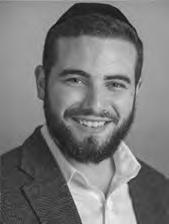
A while back, a clip of a social experiment went viral. A man dressed up as Sponge-Bob and went to Hollywood Blvd. But instead of posing for pictures and making a few bucks, he had a different plan. He laid down on the ground and called, help, help, I can't get up! As you watch the video, sadly, no one stops to help. People literally stepped over a man lying on the floor, crying for help. Then, finally, a group of Yeshiva students walked by. They bend down and help Sponge Bob stand up. The clip ends with Sponge Bob doing a rendition of Hava Nagillah. What inspired these young men to be different than all the other passersbys?
This week’s parsha (Leviticus 13-2) describes a spiritual disease called tzaras. It was a skin condition caused by speaking ill of others. Fascinatingly, for it to be determined if it was tzaras, the Kohen (priest) would examine and tell the afflicted if they had the disease. The explanation for this process, says Rabbi Moshe Feinstein, can be found in the cause of the sin. A person could mistakenly think that G-d was only found in the Temple or the synagogue. I would think that G-d doesn’t care enough about me to listen to every conversation I have. And so this person begins to gossip about others. So when this person is afflicted with a skin condition, the Kohen leaves G-d’s Temple and comes to see him/her. This is a reminder that G-d is with us every single moment. We are so precious to Him, so valuable, that even our idle gossip profoundly impacts His world. I think that those yeshiva students had truly internalized this lesson.
If you encounter an antisemitic or other hate incident, you are not alone. Your first call should be to the Jewish Community Relations Council (JCRC) in Omaha at 402.334.6572, or email JCRCreporting@jewishomaha.org. If you perceive an imminent threat, call 911, and text Safety & Security Manager James Donahue at 402.213.1658.



ANNOUNCEMENT
ATTENTION ADVERTISERS! For $225/25 word classified you can advertise in over 150 Nebraska newspapers. For more information contact the Jewish Press or call 1-800-369-2850.
HELLO NEBRASKA! Introducing www.nepublicnotices.com, a new public notice website presented as a public service by all Nebraska newspapers. Free access, fully searchable – because democracy depends upon open government and your right to know.
AFFORDABLE PRESS Release service. Send your message to 155 newspapers across Nebraska for one low price! Call 1-800369-2850 or www.nebpress.com for more details.
BUSINESS FOR SALE
CENTRAL NEBRASKA Wholesale Popcorn/Kettle Corn Manufacturing and Snack Distribution Business serving Nebraska, South Dakota, Kansas and Wyoming. Inquire at kettlecornsnacks2016@gmail.com.
FOR SALE - SENIORS
SAFE STEP. North America’s #1 Walk-In Tub. Comprehensive lifetime warranty. Top-of-the-line installation and service. Now featuring our FREE shower package and $1600 Off for a limited time! Call today! Financing available. Call Safe Step 1-877-9330188.
PORTABLE OXYGEN Concentrator? May be covered by Medicare! Reclaim independence and mobility with the compact design and long-lasting battery of Inogen One. Free information kit! Call 855-385-3580.
FOR SALE - SATELLITE
•
•
•
•
•
DIRECTV Stream - Carries the Most Local MLB Games! CHOICE Package, $89.99/mo for 12 months. Stream on 20 devices in your home at once. HBO Max included for 3 mos (w/CHOICE Package or higher.) No annual contract, no hidden fees! Some restrictions apply. Call IVS 1-855-763-0124.
FOR SALE - UTILITIES
PREPARE FOR power outages today with a Generac Home Standby Generator. Act now to receive a FREE 5-Year warranty with qualifying purchase. Call 1-402-899-2584 today to schedule a free quote. It’s not just a generator. It’s a power move.
FOR SALE – HOME SERVICES
DOES YOUR basement or crawl space need some attention? Call Thrasher Foundation Repair! A permanent solution for waterproofing, failing foundations, sinking concrete and nasty crawl spaces. FREE Inspection & Same Day Estimate. $250 off ANY project with code GET250. Call 1-844-958-3431. REPLACE YOUR
JTA
When Mel Brooks was filming The Producers, he recalled an executive approaching him and saying, “The curly-haired guy—he’s funny looking. Fire him.”
Brooks said he would, but never intended to actually do it. And when The Producers came out, it became a classic in no small part because of that “curly-haired guy” — otherwise known as Gene Wilder.
That story is one of many retold about the actor in Remembering Gene Wilder, a new documentary about Wilder that, following a run last year on the Jewish film festival circuit, has opened in New York with a further rollout ahead in the coming weeks.
The relationship between Wilder and Brooks is a key subject of the film, and for good reason:
The two worked together on three classic films, The Producers, Blazing Saddles, and Young Frankenstein, and were close friends. Brooks is interviewed at length in the documentary.
But according to the director of the film, it’s notable that Wilder’s Jewish comedic sensibilities came from a very different place as Brooks’ — they were subtler and more softspoken.
“His style was a little bit different; he wasn’t a Borscht belt comedian, but he certainly learned from them,” Ron Frank told the Jewish Telegraphic Agency. “Take Mel Brooks, a New York Jew through and through, and pair him with Gene Wilder, a Wisconsin Jew.”
Wilder grew up watching Jewish comedi-




ans like Danny Kaye and Jerry Lewis on TV in his Milwaukee home. But, Frank said, he himself “wasn’t a comedian- he was a comedy actor. He played it real. Most of his performances, he didn’t force the comedy, he didn’t force the humor, he was more or less himself, and that made it real and funnier.”
Gene Wilder entered the world with the given name Jerome Silberman, born in Milwaukee in 1933. His father was a first-generation Russian Jewish immigrant, and his mother was second-generation. He first developed his comedic gifts at a young age, when his mother became ill, and a doctor told young Gene to try to make her laugh.
“Jokes are in the genes when it comes to Jewish comedy,” Frank said. “I’d say that’s helped Jews survive, for centuries.”
Wilder soon headed to the Army, and from there, he went to the New York theater and began his movie career in the late 1960s. His movie debut was the 1967 classic Bonnie and Clyde, in which he played a hostage of the titular couple. His second film, the following year, was Brooks’ The Producers
He continued to star in popular movies throughout the 1970s and ‘80s, including the iconic 1971 children’s film Willy Wonka & the Chocolate Factory and a series of comedies with Richard Pryor. In the 1990s, he appeared in a pair of Will & Grace episodes, one of which won him an Emmy.
Wilder died in 2016, at the age of 83, of complications from Alzheimer’s Disease. Frank



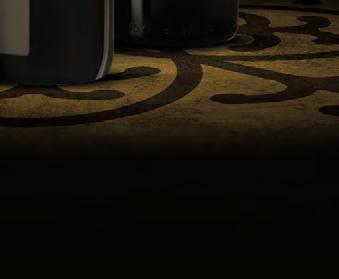

said the documentary had been in the works since 2018.
Perhaps Wilder’s most Jewish role was in 1979’s The Frisco Kid, in which Wilder plays Rabbi Avram Belinski, who travels from Poland to the American West and meets an outlaw played by Harrison Ford. In that movie, Wilder’s character sports a black hat and a bushy beard, and chants a convincing rendition of the end of the weekday morning prayer service, with correct Hebrew pronunciation, while wearing tefillin and a prayer shawl.
In reality, Wilder’s Jewish identity was mostly secular.
ideal blank Jewish canvas who could embody the sort of unspoken Jewish inflections and line readings that make characters like Leo Bloom, Frederick Frankenstein, and Jim in Blazing Saddles so hilariously Jewish to a Jewishly-literate audience, without anything that

“I have no other religion. I feel very Jewish and I feel very grateful to be Jewish,” Wilder told an interviewer in a 2005 book called Stars of David: Prominent Jews Talk About Being Jewish. “But I don’t believe in God or anything to do with the Jewish religion.”
Jenny Caplan, a scholar on American religion and popular culture at the University of Cincinnati and author of the 2023 book Funny, You Don’t Look Funny: Judaism and Humor from the Silent Generation to Millennials, told JTA, “Gene Wilder was a great example of a performer whose Jewishness was, at times, implicit, explicit, and invisible.”
She added, “In the hands of a writer and director like Mel Brooks, Wilder became the
would mark the characters as obviously Jewish to a less Jewishly-literate viewer.”
The now 97-year-old Brooks is interviewed extensively in the film, sharing stories from his many years working with Wilder.
“I don’t think we could tell this story without him,” Frank said of Brooks. “It was just a delightful interview... Mel said, ‘I’ll give you a half an hour,’ and we ended up staying an hour. And he told stories that I wish I could put in the film, but it would probably be a three-hour movie.”
Read more at www.omahajewishpress. com.
